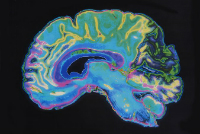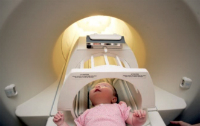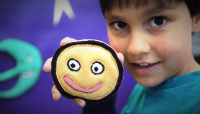-

PhD Student
-

Research Associate
-

Senior Lecturer in Neurodevelopmental Science
-

Research Assistant
-

Professor of Forensic Psychiatry
-

Research Assistant in Digital Health
-

PhD Student
-

PhD Student
-

Research Associate (Communications Officer)
-

PhD Student
-

Research Associate
-

Professor in Forensic & Neurodevelopmental Sciences
-

PhD student
-

Senior Lecturer
-

Senior Lecturer
-

Senior Lecturer
-

Senior Research Officer
-

Research Assistant and PhD Candidate
-

Research Assistant
-

Visiting Research Fellow
-

PhD student
-

PhD Student
-

Research Assistant
-

Research Assistant
-

PhD Student
-

Postdoctoral Research Associate
-

PhD student
-

PhD Student
-

PhD Student
-

Research Assistant
-

PhD Student
-

Clinical Research Nurse
-

PhD student
-

Research Assistant
-

Professor of Cognitive Neuroscience
-

Clinical Reader
Click here for a full list of people associated with this Department
ABC brings together world-class experts forming a multidisciplinary team which is widely published and has conducted the largest number of studies in Europe on antisocial behaviour in children and adolescents.
The Brain Imaging in Babies Study (BIBS) aims to improve understanding of how a baby's brain develops from before birth up until 3-4 years of age.
Gen2020 researchers will map the potential impact of prenatal exposures such as Covid-19 on fetal and childhood brain development and outcomes.
The DID-SIG is an independent group composed of clinicians (including clinical psychologists, psychiatrists, occupational therapists and nurses) from across the UK and beyond who have a special interest in dementia in people with intellectual disabilities.
The first of its kind in the UK, our cutting-edge research aims to improve understanding of domestic violence and abuse (DVA) perpetration and victimisation among military personnel and their partners.
One of the largest ever research projects finding new ways to develop drugs for autism spectrum disorder (ASD).
“Fitness to Plead” is a fundamental but understudied concept of criminal justice. It refers to a defendant’s ability to understand and participate in the legal process, a prerequisite to a fair trial. There is a need to balance the individual’s right to make autonomous decisions regarding their trial with their ability to effectively participate. The assessment of fitness to plead is carried out by psychiatrists and determined by a judge, and the costs of dealing with unfit individuals are high.
“Fitness to Plead” is a fundamental but understudied concept of criminal justice. It refers to a defendant’s ability to understand and participate in the legal process, a prerequisite to a fair trial. There is a need to balance the individual’s right to make autonomous decisions regarding their trial with their ability to effectively participate. The assessment of fitness to plead is carried out by psychiatrists and determined by a judge, and the costs of dealing with unfit individuals are high.
The Forensic Research Group explores the complex relationship between mental disorders and crime.
The Institute for Translational Neurodevelopment was launched in 2013 and carries out multidisciplinary ‘translational’ studies of normal development, and how abnormalities in that process lead to high cost neurodevelopmental disorders.
The latest annual LeDeR report in collaboration with our academic partners on behalf of NHS England.
London Down Syndrome Consortium is a multidisciplinary group of clinicians, human geneticists, developmental psychologists, mouse geneticists, psychiatrists and cellular scientists working towards understanding dementia in people with Down syndrome.
Led by Dr. Nicolaas Puts, the Sensory Inputs lab focuses on measuring the behavioural, physiological, and clinical response of human to different types of sensory information.
We are investigating the link between Down syndrome and Alzheimer's disease from the different perspectives of our fields. People with Down syndrome are predisposed to developing Alzheimer's disease and we are working together towards finding out why.
 The Neurochemical Basis of Antisocial Personality Disorder and Psychopathy
The Neurochemical Basis of Antisocial Personality Disorder and Psychopathy
Violent crime has enormous financial and human costs: 614,400 incidents of violence per year in the UK costing the economy £124 billion. It is mostly committed by men with antisocial personality disorder (ASPD). These men have a stable pattern of violent and antisocial behaviour from childhood. About 1/3 meet additional criteria for ‘psychopathy’: individuals who have abnormal patterns of empathy and fail to respond to treatments. This places great strain on NHS resources, which lack effective treatments for many of these men. Evidence shows that there are structural and functional differences in the brains of these men, which play a role in their antisocial behaviours. However, knowledge of the underlying brain chemistry (neurochemistry) is limited. Hence, our group is aiming to develop an understanding of the role of different neurochemical systems in ASPD and psychopathy, and how they interact.
Find out more about this project
 Improving understanding of infant brain development in early life
Improving understanding of infant brain development in early life
The Brain Imaging in Babies study (BIBS) aims to improve understanding of how a baby's brain develops from before birth up until 3-4 years of age. Working with children from a variety of backgrounds and communities, we use a combination of state of the art diagnostic tools such as MRI scans alongside traditional behavioural assessments to capture the earliest information on infant brain development.
Find out more about BIBS
 ABC: Altering Behaviour in Children
ABC: Altering Behaviour in Children
Behavioural difficulties also known as Conduct Problems (CP) is the commonest childhood mental health condition. Although the underlying cause is complex, there is strong evidence that children with CP have differences in brain anatomy and function. Understanding the cause(s) of CP is important as these children are much more likely to have continued problems in adult life. We are conducting a long-term study of 90 boys (aged 5-10 years old) with CP with data being collected at two points: before and after the completion of parenting interventions. Imaging and behavioural measures will take place at both time points. We will also be completing these measures with children without CP and then compare the data across both groups.
Find out more about ABC
 Neurodevelopmental Disorders Clinical Trials Centre (NDD-CTC)
Neurodevelopmental Disorders Clinical Trials Centre (NDD-CTC)
The NDD-CTC undertakes fully powered clinical trials of potential treatments identified in our clinical trials pipeline based on shiftability and other experimental studies within the department, and includes treatments for individuals with Autism spectrum conditions, Down syndrome, and intellectual disabilities.
Find out more about the NDD-CTC
 EU-AIMS Longitudinal European Autism Project (LEAP)
EU-AIMS Longitudinal European Autism Project (LEAP)
The EU-AIMS Longitudinal European Autism Project (LEAP) aims to identify risk factors that contribute to differences in brain development, difficulties in social behaviour and other core symptoms of autism spectrum disorders (ASD). By understanding how the brain develops, we can improve our ability to detect if something is out of the ordinary then tailor interventions to individuals with different developmental conditions.
Find out more about LEAP

29 January 2025
King’s College London has ranked ninth in the world for Psychology in the Times Higher Education…
5
Feb
05 February 2025
Drop-in for free pizza and discuss any general or study-specific questions with the Joint R&D…
11
Feb
11 February 2025
Neuropsychiatry Meetings discuss exciting research and interesting cases relevant to neuropsychiatry…
21
Feb
21 February 2025
Join us for a celebration of youth involvement in mental health research through interactive stalls…